Clean oceans. Improved living standards. Thriving coastal communities.
Brands are well aware of the plastic waste crisis, and many want to join the fight to protect the environment and stop ocean plastic.
But to prevent pollution from waste and fight back against the plastic problem, we need to shift towards a fair circular economy – one in which environmental protection goes hand-in-hand with social justice.
Social justice, or the fair treatment of everyone in a society, has become a political buzzword, but at CleanHub, we’ve seen the authentic impact this work has on communities. In a recent panel, our VP of Marketing Nikki Stones spoke to industry experts about why social justice is urgently needed in the waste management sector and how brands can be the driving force of this change. Read the key takeaways from the event below.
5 reasons brands have a role to play in a fair circular economy
Climate change is directly linked to inequality
Many brands think about climate change in abstract terms and numbers:
- Sea levels are rising
- Global temperatures are warming
- There are now 50-75 trillion pieces of plastic and microplastics in the ocean
But our work along waste streams in places like India and Indonesia shows that these environmental issues have concrete effects on communities’ living standards.
Plastic waste, in particular, being one of the worst types of waste before other hazardous waste, impacts the poorest the most. It kills fish that communities could live off. Wealthier people have the option to source food from anywhere, to travel to the cleaner beach or to go somewhere cleaner, but poorer people don’t.
Kate Larsen, human rights and sustainability in supply chains advisor
And that’s not to mention the impact of the production of plastic, which supports the oil and gas industry, leading to rising sea levels.
Whether it is plastic waste killing the fish that communities rely on or rising sea levels causing destruction through flooding, pollution is responsible for damaging livelihoods, health, and wellbeing.
A fair circular economy is not just about reducing plastic waste, but it is also about improving the lives of people like Geethu, a waste collector at Green Worms Waste Management, one of our collection partners.
Fairer waste management will improve sustainable development
It’s clear that climate change and social justice are linked, and tackling the waste crisis can have a rippling impact on global communities.
Improving waste management and getting that plastic collected touches on many other aspects of sustainable development.
Zoë Lenkiewicz, waste and sustainable development goals expert at the UN Environment Programme
The United Nations’ Sustainable Development Goals (SDG) recognize that ending poverty and inequality and improving working conditions are key to tackling climate change and preserving oceans and forests. “That is at the heart of what we call a just transition to a circular economy,” Zoë says.
Currently, there’s an imbalance of power between multinational corporations that want waste materials collected, and the people who are doing the hard work of waste picking, who are often below the poverty line.
It can be exploitative. People working with waste are often among the most vulnerable in society, and by improving waste management we can bring about a vast range of key benefits.
Zoë Lenkiewicz, waste and sustainable development goals expert at the UN Environment Programme.
In South Africa, the government has produced guidance on how to bring informal waste pickers into a system where they can be properly valued and given recognition for their expertise, so working conditions are improved and compensation is fair.
“We need to make sure that new models are benefitting people in poverty, that sustainable development is a lot more than a narrow focus on carbon emissions,” Zoë says. “It’s about the world we all want to see.”
Removing the stigma and giving workers dignity
Dirty, dangerous, and demeaning.
That’s how Kate says waste work has been considered historically.
Waste picking is traditionally an informal industry, meaning workers often don’t have paperwork, health and safety training, or sophisticated HR systems ensuring they receive minimum wage and insurance. 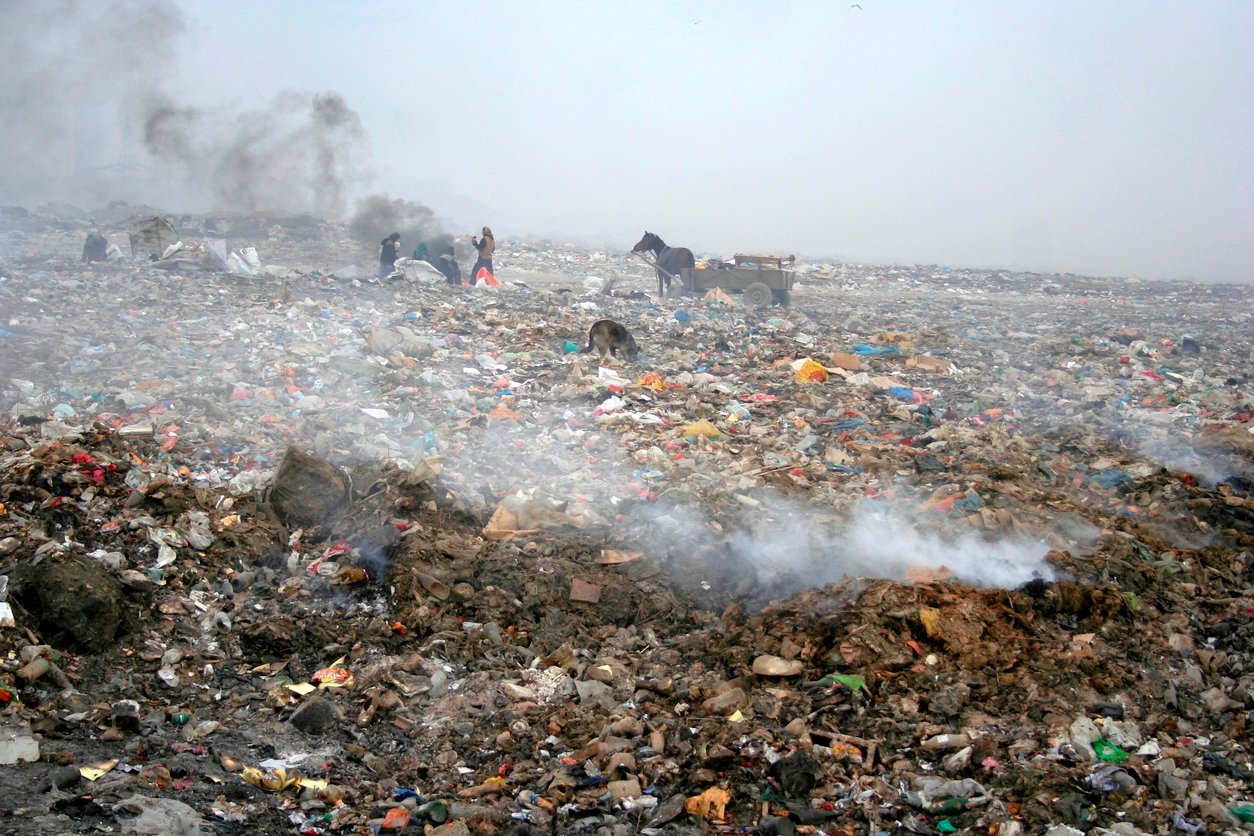
Scrappy and hardworking entrepreneurs, like the CEO of our collection partner Green Worms, Jabir Karat, are creating solutions to the plastic waste problem, but they need support from the wider industry to improve their operations.
That’s where brands come in. “This industry doesn’t have a lot of money until we all as a bigger industry – the brand world behind it – push that money down,” Zoë says.
Formalizing the industry and giving workers a sense of dignity also helps break the stigma these jobs carry. “There’s a social taboo associated,” Jabir says. He recalls one worker who didn’t want her picture on Green Worm’s social media because she was afraid her children would be ashamed of her job.
I really want to take care of these people who contribute, but who will bear the cost of it? And who is willing to pay for these things? And who is demanding it, as the customer and the brand?
Jabir Karat, CEO Green Worms Waste Management
Jabir’s Green Worms is an excellent example of what is possible with the right support. Now, 89% of workers say they’d recommend the job to friends and family. “People have started believing this is a good workplace,” he says.
Green Worms is working hard to improve the lives of its workers, from giving them time off with a trip out and a picnic to providing education, menstrual hygiene, and financial literacy for workers. “We really want to show this is possible,” Jabir says.
Empowering women
Women face a difficult journey in waste-picking roles. Often, they become disenfranchised in the system, despite having the biggest responsibility for waste management domestically. At the community level, they lose their influence and decision-making power.
But this is changing. In Sri Lanka, the UN promotes women’s engagement in waste management at the local government level to ensure they have a seat at the table, while in Jordan, women are being trained to run their own waste management businesses. And in the Philippines, a business incubator called Clean Cities Blue Ocean is showing that women-led waste management businesses can get fantastic results.
On the ground, Jabir and Lakshmi Menon, Head of Impact at CleanHub, report transformations in the women they work with. “You can see the visual difference,” Lakshmi says. The women are happier and able to invest in their homes.
“One of the biggest things that almost all the workers have said is the ability to contribute to the family income,” Lakshmi says. Single mothers are motivated by contributing to their children’s education, and women who used to be financially dependent on their husbands are empowered by their work and able to take ownership of their home life.
Recognizing the value of waste pickers
Although there are clearly many benefits to improving the waste management industry, one of the problems the sector faces in making the necessary changes is that plastic’s value for recycling isn’t recognized.
At the moment, there’s not much money in plastic recycling, so, therefore, people can’t be paid much to be part of that system unless partners like CleanHub come in to help support those organizations. What we need most of all is more laws and enforcement requiring businesses to buy only recycled plastic, not virgin, to drive up demand and increase prices to the recycled plastic industry, and that can help increase wages and conditions for workers in the system.
Kate Larsen, human rights and sustainability in supply chains advisor
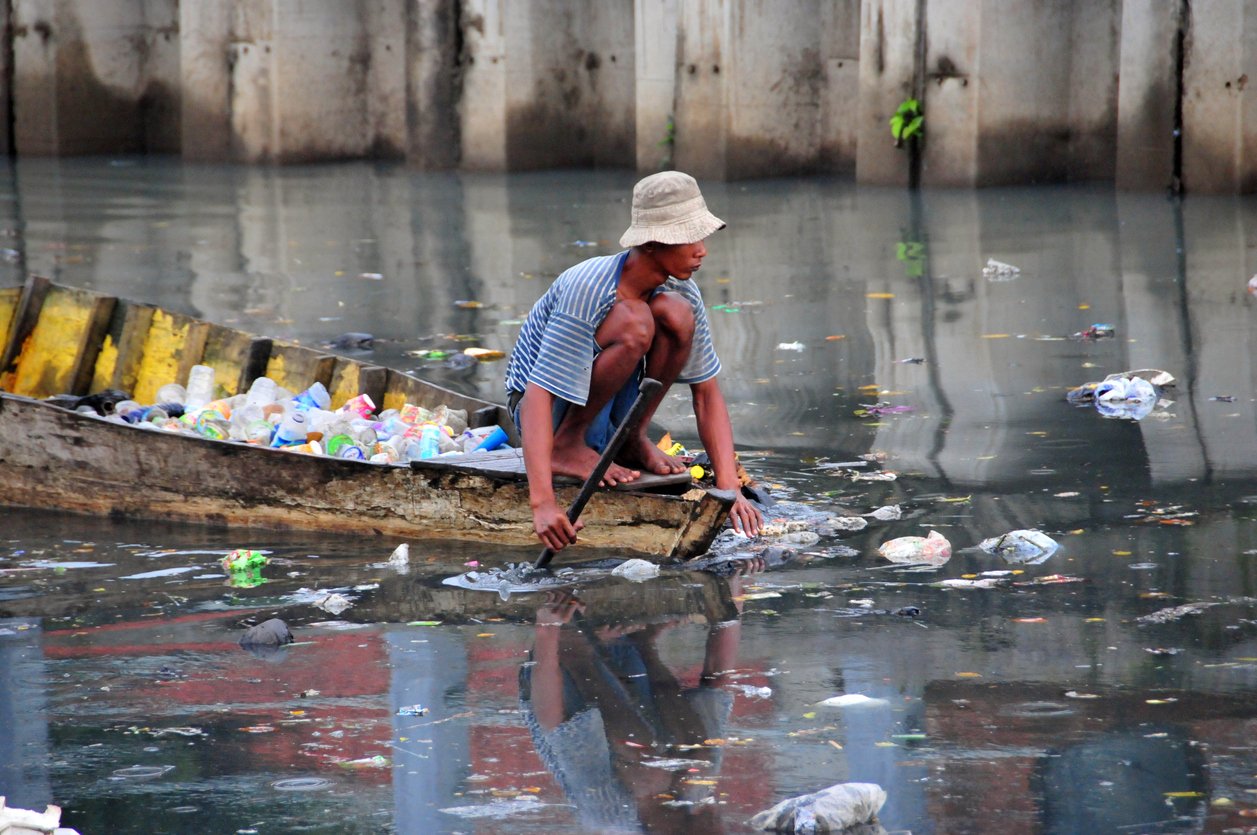
Because plastic has a low value compared to other waste, like metal, Zoë said payments could factor in the long hours waste pickers work in unpleasant conditions, and the benefits their work ultimately brings to their community and beyond. “Is it really fair to just pay waste pickers for the value of the plastic they’re collecting, or should we also be paying for their service to society?”
As a brand - what questions should I ask my plastic collection partner?
As more brands seek to contribute to a fair circular economy, partners like CleanHub make it possible to transition responsibly.
If you want to do more to invest in social change, Zoë gives her advice on the major pitfalls you should watch out for, and the questions you should ask about the structure of the scheme.
Red flags to watch out for when investing in a project
These questions can help you root out vulnerabilities in your partnership.
- Are people being provided with the appropriate health and safety equipment, including PPE, training, ventilation, health insurance, and health checkups?
- Are people being paid for their service to society, over and above the value of the materials they collect?
- Is there a strong gender balance?
- How are people’s needs in terms of service provision, employment opportunities, and health protections being met?
- How is child labor being eradicated from the supply chain? Can you look at any loopholes? Be prepared to talk to your partner on the ground about what measures are being taken to protect children and other vulnerable people from exploitation.
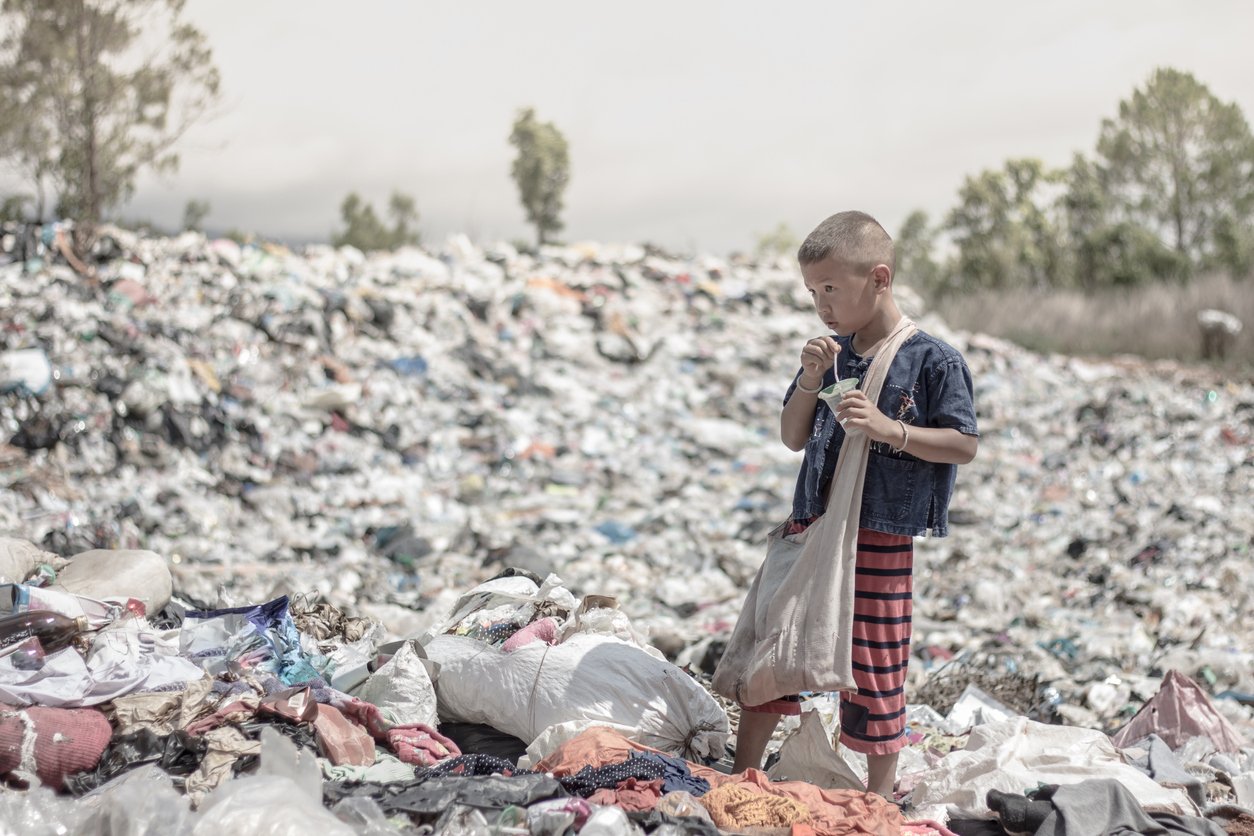
How is the scheme structured?
Consider these questions to find out crucial information about how a potential partner operates and whether they are providing a worthwhile service.
- Is it a bottom-up scheme? Is it providing what the community needs, or is it just delivering what donors are looking for?
- Is the scheme actually trying to leave the environment cleaner or is it cherry-picking valuable materials while leaving worthless ones in the streets to block drains or end up in dump sites?
- Have you done your due diligence? Is the municipality involved or supportive of the programme? Are there existing local initiatives that this project could be competing with, or complementing? You need to be aware of unintended consequences where you could disenfranchise local people or distort the market by out-competing local businesses.
- Is it creating long-term change for local people? What is the added value for the local community? What happens when the funding ends? Are local people running the programme, and who owns it? Who owns the waste?
- How are claims audited and verified? Can you or an auditor visit the site and meet the workers?
The waste management industry faces challenges, but the small changes make a big difference. By pushing for a fair circular economy, brands can drive forward social justice and environmental protection.
“It’s really important for everyone to remember,” Kate says, “when you are investing in social change, when you are investing in environmental programmes, as long as you’re doing it with the right partners, then you really will have an impact not just on the environment, but actually on people’s lives.”
Do you have questions about your brand’s impact? Book a consultation with one of our experts.

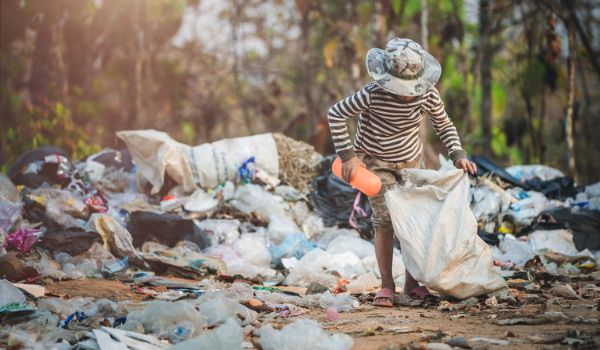
-3.png)
-1.jpeg?width=380&name=8a81c9a8-61ad-450f-a366-9c4b7a70237c_8G3bu04g%20(1)-1.jpeg)

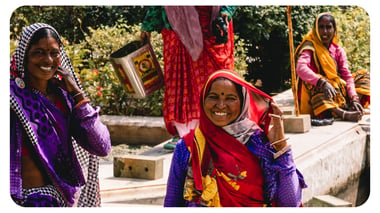
.jpg?width=380&name=_DSC7838%20(1).jpg)
.webp?width=380&name=Founders%20(1).webp)
%20(1).jpg?width=380&name=MRF%20opening%20photo%203%20(1)%20(1).jpg)
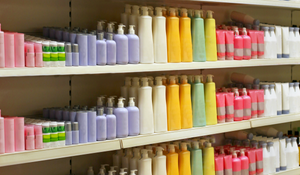


.webp?width=380&name=CEOfounders%20(1).webp)
